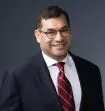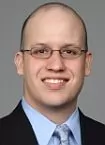In a very big deal for TCPA class actions, the Supreme Court granted review today in Facebook, Inc. v. Duguid. The petition (pdf) raises the most significant issue in litigation under the Telephone Consumer Protection Act (TCPA): what kind of equipment constitutes an "automatic telephone dialing system" (ADTS) triggering the TCPA's restrictions on calls and texts? (The other question presented by the petition-the constitutionality and severability of the exception for government debts-was decided by the Court earlier this week.)
As we have reported, there is a deep circuit split over how to read the statutory language defining an ATDS: "equipment that has the capacity-(A) to store or produce telephone numbers to be called, using a random or sequential number generator; and (B) to dial such numbers." 47 U.S.C. § 227(a)(1).
The issue presented in Duguid is "whether the definition of an ATDS in the TCPA encompasses any device that can 'store' and 'automatically dial' telephone numbers, even if the device does not 'us[e] a random or sequential number generator." This issue is critically important, because if a device that merely can dial a number from a preselected list-such as an iPhone-qualifies as an ATDS, the TCPA's restrictions will prohibit an immense amount of activity that is commonly thought to be lawful. The issue has been litigated across the country, and the resolution of whether a device used for dialing or texting counts as an ATDS is frequently the central merits issue (one that is sometimes outcome-determinative) in TCPA litigation.
In Duguid, the Ninth Circuit adhered to its sweepingly broad definition of ATDS that it had adopted in Marks v. Crunch San Diego, LLC. (Here's our report on Marks.) The Second Circuit recently agreed with the Ninth Circuit in Duran v. LaBoom Disco; those decisions conflict with the views of the Eleventh Circuit in Glasser v. Hilton Grand Vacations Co. and the Seventh Circuit in Gadelhak v. AT&T Services, Inc., in which Archis and other firm lawyers represented AT&T.
Briefing should begin over the summer and the case is likely to be argued in late 2020.
Visit us at mayerbrown.com
Mayer Brown is a global legal services provider comprising legal practices that are separate entities (the "Mayer Brown Practices"). The Mayer Brown Practices are: Mayer Brown LLP and Mayer Brown Europe - Brussels LLP, both limited liability partnerships established in Illinois USA; Mayer Brown International LLP, a limited liability partnership incorporated in England and Wales (authorized and regulated by the Solicitors Regulation Authority and registered in England and Wales number OC 303359); Mayer Brown, a SELAS established in France; Mayer Brown JSM, a Hong Kong partnership and its associated entities in Asia; and Tauil & Chequer Advogados, a Brazilian law partnership with which Mayer Brown is associated. "Mayer Brown" and the Mayer Brown logo are the trademarks of the Mayer Brown Practices in their respective jurisdictions.
© Copyright 2020. The Mayer Brown Practices. All rights reserved.
This Mayer Brown article provides information and comments on legal issues and developments of interest. The foregoing is not a comprehensive treatment of the subject matter covered and is not intended to provide legal advice. Readers should seek specific legal advice before taking any action with respect to the matters discussed herein.


